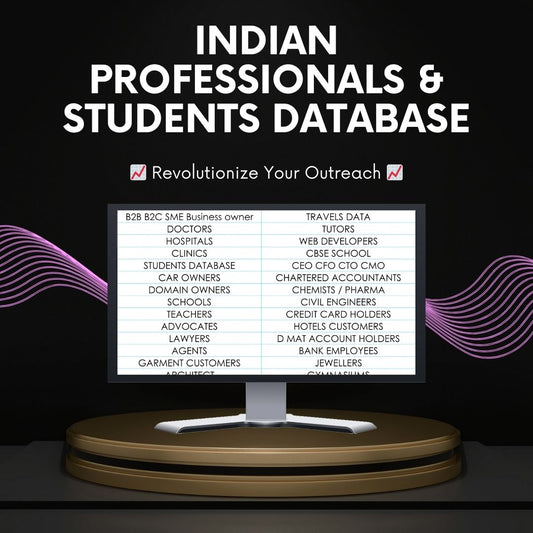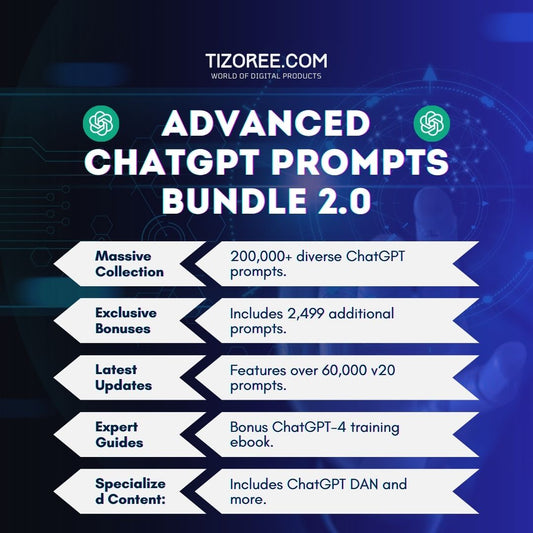Understanding ChatGPT: The Future of Generative AI
Share
In recent months, generative AI has emerged as a significant topic in technology discussions, particularly with the introduction of OpenAI's ChatGPT. This revolutionary tool has captured the attention of millions, rapidly gaining users and sparking debates about its implications for society.
In this blog, we will explore what generative AI is, the workings of ChatGPT, its features, and the potential challenges it presents.
What is Generative AI?
Generative AI is a branch of artificial intelligence that focuses on creating new content rather than merely analyzing existing data. This capability sets it apart from traditional AI, which typically operates by processing and interpreting information that is already available. Generative AI can produce text, images, music, and more, making it a transformative technology in various fields.
The Rise of OpenAI and ChatGPT
OpenAI, founded in 2015 by tech visionaries like Sam Altman and Elon Musk, is at the forefront of generative AI research. Initially established as a non-profit, it has since transitioned to a capped profit model, allowing it to attract investment while still focusing on its mission to advance digital intelligence for the benefit of humanity.
ChatGPT, launched on November 30, 2022, has quickly become one of OpenAI's most notable products. Within just five days, it amassed over a million users, making headlines across social media platforms. This rapid growth highlights the public's interest in AI technologies and their potential applications.
How Does ChatGPT Work?
ChatGPT operates on a natural language processing model that enables it to engage in conversational interactions. The underlying technology is based on the Generative Pre-trained Transformer (GPT) framework, with ChatGPT utilizing an upgraded version to enhance its performance. This model allows for dynamic dialogue, enabling the AI to answer follow-up questions, admit mistakes, and reject inappropriate requests.
Training and Development
The training process for ChatGPT involves reinforcement learning from human feedback, where the AI learns from vast amounts of text data sourced from various platforms. This process helps refine its understanding of language and improves its ability to generate coherent and contextually relevant responses.
Features of ChatGPT
ChatGPT boasts several impressive features, including:
- Conversational Interaction: Users can engage with the AI in a natural dialogue format.
- Grammar Correction: The AI can help users correct grammatical errors in their writing.
- Summarization: ChatGPT can distill complex texts into simpler concepts.
- Code Assistance: It can assist programmers by identifying bugs in code and suggesting solutions.
Challenges and Ethical Implications
Despite its impressive capabilities, ChatGPT is not without challenges. The AI is still in its developmental stages, which means its knowledge base is limited and primarily linked to information available up to 2021. This limitation can render some queries ineffective or yield outdated responses.
Content Moderation and Safety
OpenAI has implemented a moderation API to help filter out harmful content and maintain safe interactions. However, the system is not foolproof, and there have been instances where users found ways to bypass these safeguards. This raises concerns about the potential misuse of generative AI, particularly in creating inappropriate or dangerous content.
Impact on Employment and Industries
The advent of generative AI tools like ChatGPT also poses potential threats to various sectors, especially those reliant on creative and written content. Many fear that the ability of AI to generate human-like text could disrupt traditional journalism and writing professions. Others argue that instead of replacing jobs, these tools could serve as valuable assistants, enhancing productivity and efficiency.
The Future of Generative AI
As generative AI continues to evolve, its implications for society will become increasingly significant. While some view ChatGPT as a harbinger of mass unemployment, others see it as an opportunity for innovation and improved workflows. The technology is already being utilized in customer service sectors, enhancing user experiences with faster and more effective responses.
Potential Applications
The applications of ChatGPT extend beyond simple interactions. Some potential uses include:
- Customer Support: Automating responses to frequently asked questions can streamline operations.
- Content Creation: Assisting writers in generating ideas or drafting articles.
- Education: Providing students with tutoring assistance and homework help.
Conclusion: Embracing the Future
ChatGPT and generative AI represent a significant shift in how we interact with technology and information. As we embrace this new frontier, it is essential to consider both the benefits and challenges that come with it. OpenAI's commitment to refining its models and addressing ethical concerns will play a crucial role in shaping the future of AI.
As we navigate this landscape, the conversation surrounding generative AI will continue to evolve. The possibilities are vast, and how we choose to harness this technology will ultimately determine its impact on society. Welcome to the future of AI, where the lines between human and machine-generated content blur, creating new opportunities and challenges for all.



